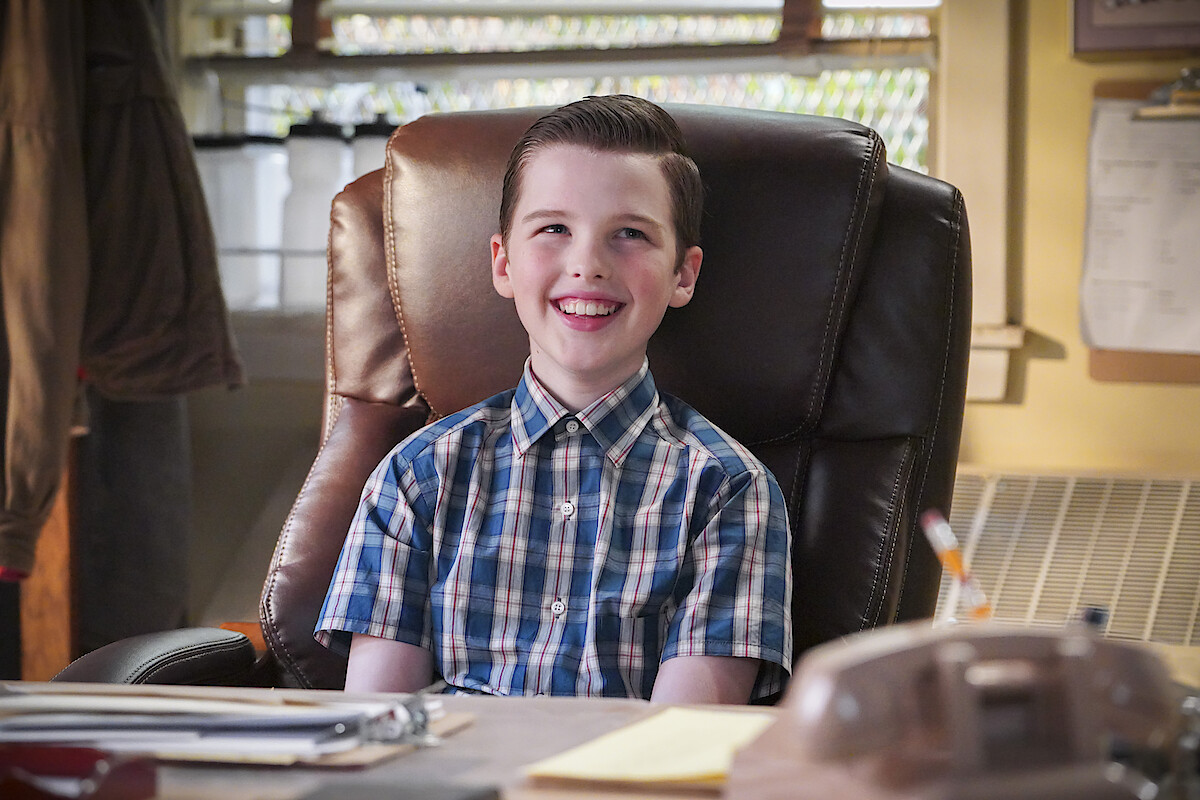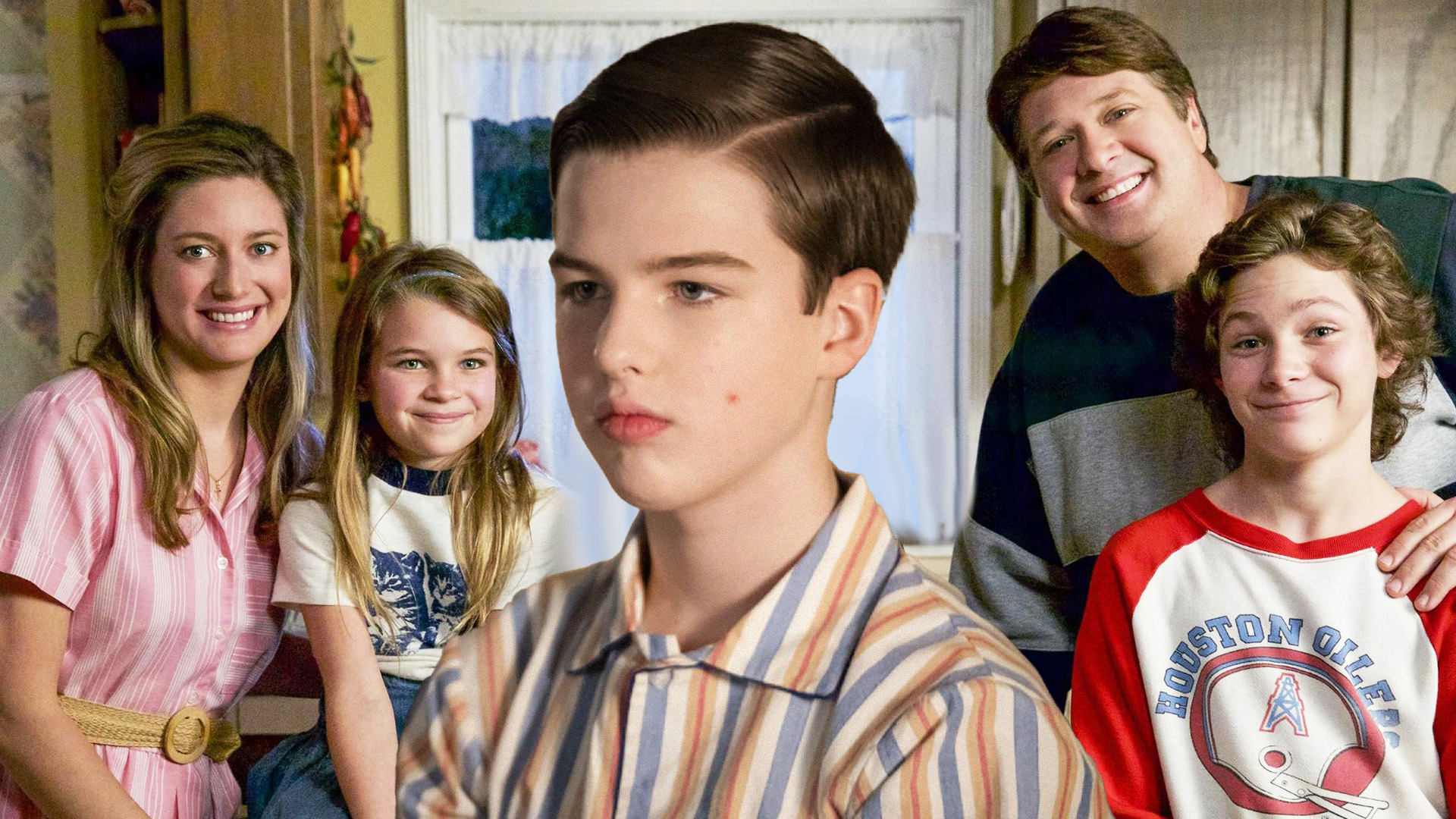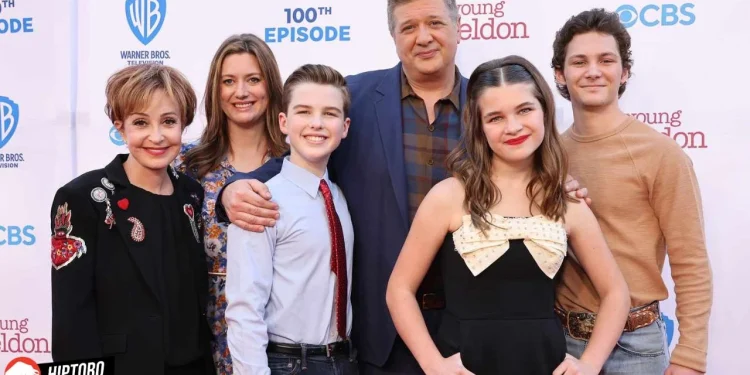“Young Sheldon Season 7,” as it approaches its much-anticipated conclusion, was expected by fans to delve deeper into the intricate lives of the Cooper family, particularly those storylines that would neatly tie up loose ends leading back to “The Big Bang Theory.”
However, Young Sheldon Season 7 premiere took an unexpected turn, spotlighting a subplot that many deem peripheral at best. The episode dedicated significant screen time to Connie (Meemaw) and Dale’s relationship—a choice that has left audiences puzzled and somewhat disappointed.

Young Sheldon Season 7: Analyzing the Premiere’s Direction
“Young Sheldon” has long been celebrated for its ability to balance the genius of its title character with the equally compelling narratives of his family members. From the onset, the show has been more than just a look into Sheldon Cooper‘s early years; it’s been a family saga, exploring themes of love, loss, and growth through the lens of the Coopers in East Texas.
Yet, as the series prepares to bow out, the decision to focus on the least dynamic duo of Meemaw and Dale in the opening episode of Young Sheldon Season 7 has sparked debates among its loyal viewers. Despite the undeniable charm and chemistry between Craig T. Nelson and Annie Potts, who bring Dale and Connie to life with effortless grace, the argument over a trivial joke between the couple seemed to occupy more narrative real estate than necessary.
This editorial choice has been critiqued not just for the space it occupied but for the opportunity costs it incurred, sidelining more pressing narratives such as George Sr.’s dwindling appearances, Sheldon’s transformative journey in Germany, and Georgie and Mandy’s evolving family dynamics.
This is my best part of Young Sheldon 💯💯🙏 pic.twitter.com/EKUMatCtQx
— The Ilaje Sultan🦸🇳🇬🇬🇧🎯🚤 (@ogunmusi) February 14, 2024
The Larger Implications of Misaligned Focus
The critique of the Young Sheldon Season 7 premiere isn’t merely about screen time; it’s about the thematic resonance and narrative fulfillment as “Young Sheldon” inches closer to its finale. The show’s strength lies in its ability to weave complex family dynamics with humor and heart, often touching on Sheldon’s future through subtle nods to “The Big Bang Theory.”
By allocating precious minutes to a subplot that feels both repetitive and disconnected from the larger storyline, there’s a sense that the show may be veering off course at a critical juncture. Connie and Dale’s on-again, off-again relationship, while entertaining in its early stages, now treads familiar ground with diminishing returns.
Their storyline, in stark contrast to the high stakes and emotional depth of the main characters’ arcs, seems to lack the gravity and relevance expected of a final-season narrative. It’s not just about what stories are told but how they contribute to the series’ legacy and its connection to the beloved universe of “The Big Bang Theory.”

A Path Forward: Realigning With Core Themes
As “Young Sheldon” continues to unfold, the hope among fans and critics alike is for a realignment with the core themes that have made the show a standout in the sitcom genre.
The Cooper family’s journey, with all its quirks, challenges, and triumphs, remains the heart of the series. Focusing on the narratives that directly impact Sheldon’s growth and the eventual bridge to his adult life in “The Big Bang Theory” would not only honor the character’s legacy but also ensure that the series’ finale resonates with the audience it has grown with over the years. “Young Sheldon” airs Thursday nights at 8 pm ET on CBS, offering viewers a blend of nostalgia, laughter, and the occasional heartache.
As the series moves forward, it carries the weight of expectations—not just to entertain, but to conclude a chapter in the “Big Bang” universe with the dignity and depth it deserves. Whether or not the focus shifts back to the more central storylines remains to be seen, but the hope is that Young Sheldon Season 7 will remember what made Sheldon Cooper, and his extraordinary yet wonderfully ordinary family, a beloved part of television history.










